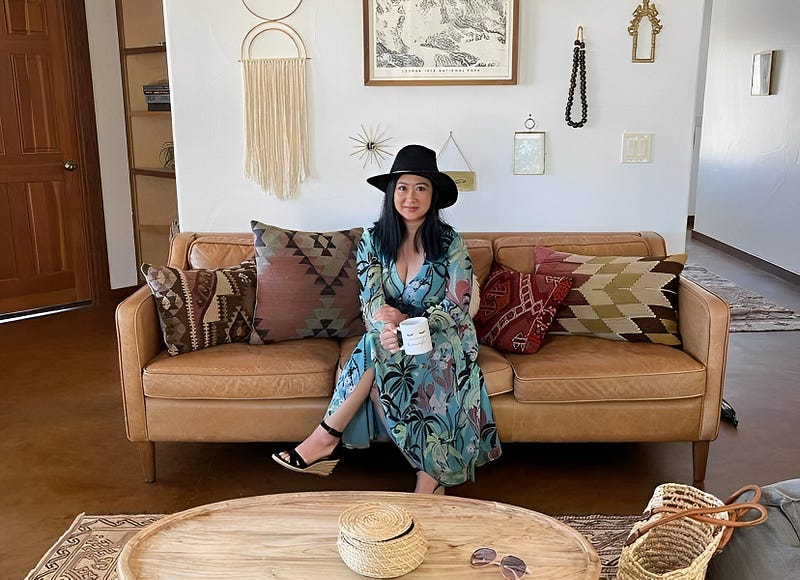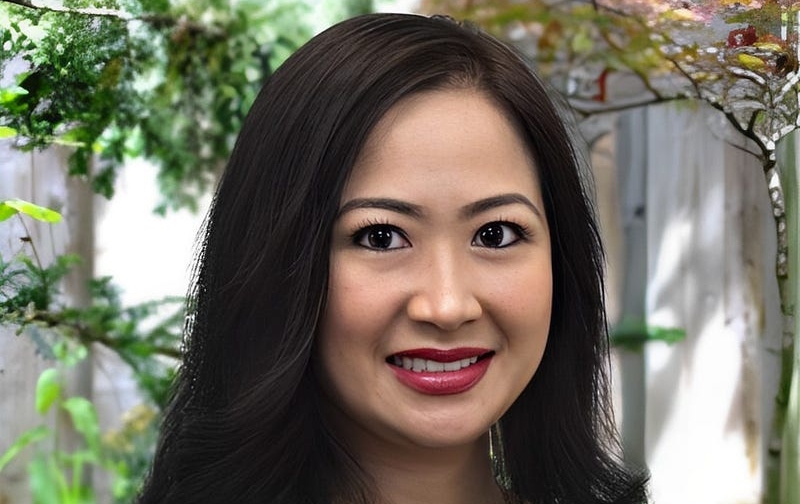Patience — Be flexible when you’re team makes a mistake and offer support in rectifying the issue.
We are living in the Renaissance of Work. Just like great artists know that an empty canvas can become anything, great leaders know that an entire organization — and the people inside it — can become anything, too. Master Artists and Mastering the Art of Leadership draw from the same source: creation. In this series, we’ll meet masters who are creating the future of work and painting a portrait of lasting leadership. As part of this series, we had the pleasure of interviewing Linda Nguyen.
Linda Nguyen thrives on bringing people together to create long-term relationships that expand business opportunities and increase returns. Her everyday goal is to cultivate meaningful connections and impactful collaborations that serve her clients and community. She hopes to inspire others through her lived experiences to defy traditional ideals and use our innate talents to pave a new path as creatives, entrepreneurs, and non-traditionalists — creating our own unique legacy.
Thank you for joining us. Our readers would enjoy discovering something interesting about you. What are you in the middle of right now that you’re excited about personally or professionally?
Connecting cultures is a passion of mine. Where I live is a melting pot of ethnicities, and I love immersing myself in different cuisines. I’ve been brainstorming new projects to build a safe space for those with different backgrounds to authentically learn more about one another.
We all get by with a little help from our friends. Who is the leader that has influenced you the most, and how?
My friend Gary Nguyen. I enjoy watching his excitement over new ideas as that’s what entrepreneurs do — they dream big dreams. He often gets out of his comfort zone and remains open-minded to new experiences while sharing his learnings with me.
Sometimes our biggest mistakes lead to our biggest discoveries. What’s the biggest mistake you’ve made as a leader, and what did you discover as a result?
Not speaking up in a room full of men who give you a seat at the table yet won’t give you a voice. I’ve learned to build my own table to give myself a voice.
How has your definition of leadership changed or evolved over time? What does it mean to be a leader now?
I was once unclear about the roles of leadership and management. Management oversees the day-to-day operations ensuring targets are hit. Leadership entails guiding team members to be independent thinkers and leaders themselves. Leadership is more relevant now as senior executives are focused on business development to scale and grow.
Success is as often as much about what we stop as what we start. What is one legacy leadership behavior you stopped because you discovered it was no longer valuable or relevant?
Once I learned to delegate effectively and communicate clear expectations, autocratic leadership is unnecessary. Your team will flourish when they are given the freedom to execute.
What is one lasting leadership behavior you started or are cultivating because you believe it is valuable or relevant?
Allowing team members to be intrapreneurs. When they are given the opportunity to contribute ideas for new projects, that’s when innovation happens.
What advice would you offer to other leaders who are stuck in past playbooks and patterns and may be having a hard time letting go of what made them successful in the past?
Bring in a coach or a professional with experience applying new playbooks to help transition the executive team to a more modern way of leading.
Many of our readers can relate to the challenge of leading people for the first time. What advice would you offer to new and emerging leaders?
There is an abundance of free articles to read and videos to watch online. Take a leadership course if you need something more structured. There are also great leadership books to learn from today’s most successful leaders..

Based on your experience or research, what are the top five traits effective leaders exemplify now? Please share a story or an example for each.
- Delegation — Communicate clear expectations while remaining available to answer questions and guide.
- People-oriented — Be a team player who enjoys working with different personalities.
- Listen — Be open-minded in seeing things from another’s perspective.
- Patience — Be flexible when you’re team makes a mistake and offer support in rectifying the issue.
- Emotional intelligence — Empathy goes a long way in ensuring your team feels heard and appreciated.
American Basketball Coach John Wooden said, “Make each day your masterpiece.” How do you embody that quote? We welcome a story or example.
I try to be physically, emotionally, and mentally present in every moment. Limiting distractions and quieting my mind is difficult. I catch myself in the moment when my mind begins to wander and return to practicing mindfulness.
What is the legacy you aspire to leave as a leader?
To inspire others to continue cultivating meaningful connections and impactful collaborations. This is how we build stronger bridges in the community.
How can our readers connect with you to continue the conversation?
www.linkedin.com/in/lindanguyencommunity
Thank you for a meaningful conversation. We wish you continued success with your mission.


